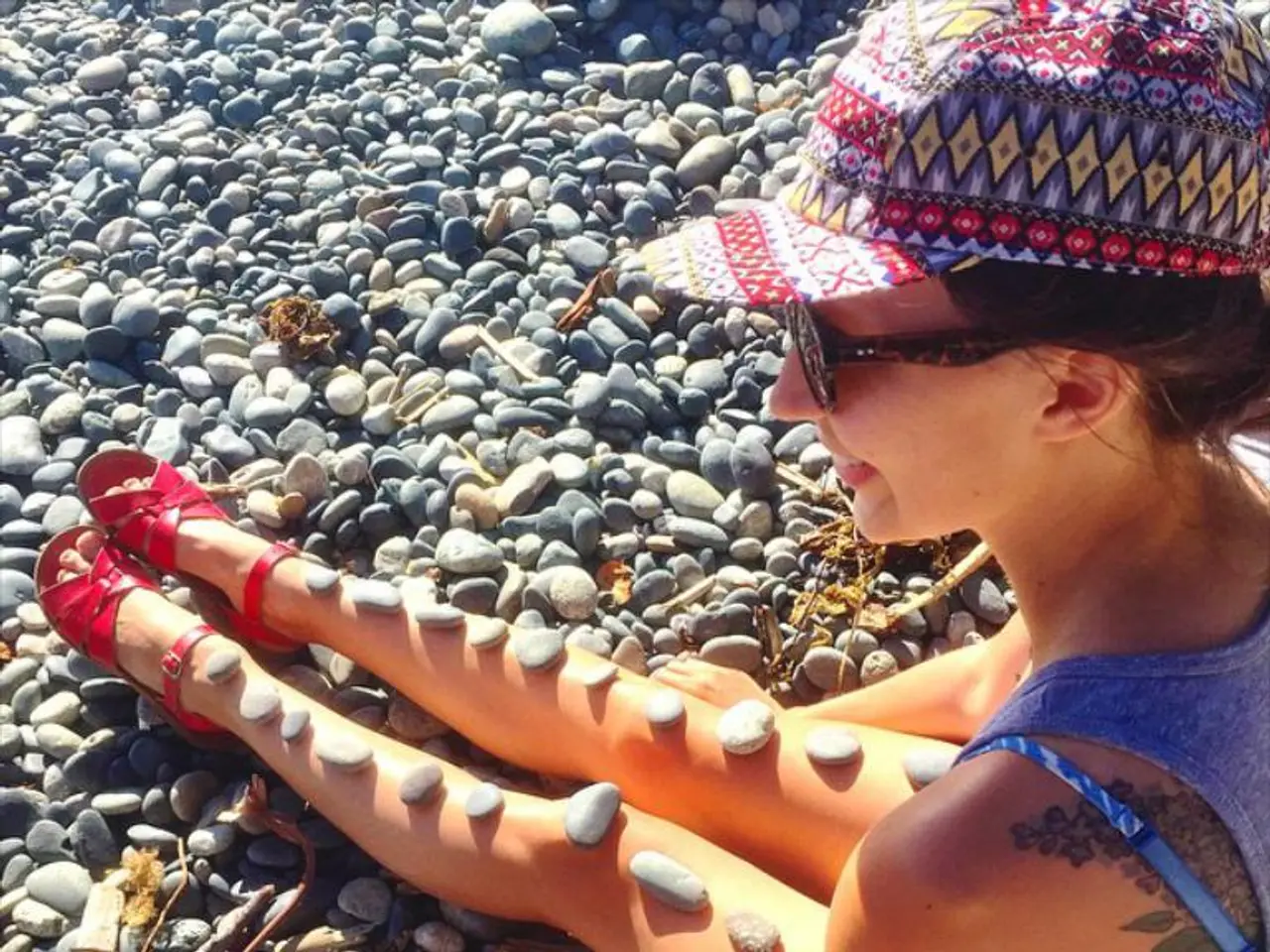Urology expert shares tips for preventing kidney stone formation during hot weather
As the mercury rises, it's essential to take extra precautions to protect your kidneys from the risks associated with heat. Kidney stone formation can be a concern during hot weather, and by following a few simple guidelines, you can significantly reduce your risk.
Fluid Intake
Staying well-hydrated is crucial in preventing kidney stone disease. Aim to drink at least 2 to 3 liters of water each day, especially if you're active or exposed to heat. Avoid waiting for thirst as a signal; by then, dehydration may have already begun.
Limit or avoid beverages that increase fluid loss, such as sugary drinks, colas, caffeine, and alcohol. Instead, use the color of your urine as a practical hydration marker. Pale yellow or clear urine indicates good hydration, while dark yellow urine signals the need to increase fluids.
Dietary Changes
Reducing intake of high-sodium foods is crucial, as they can increase calcium concentration in urine and promote stone formation. Limit your consumption of oxalate-rich foods, such as spinach, nuts, if prone to calcium oxalate stones. However, pairing calcium-rich foods with oxalate foods can inhibit absorption and reduce stone risk.
Maintain adequate dietary calcium from food sources, as it blocks oxalate absorption. Avoid excessive calcium supplementation unless advised by a doctor. Limit purine-rich foods, such as red meat and shellfish, to reduce uric acid stones. Lastly, avoid excessive sugary and cola drinks, which are linked to kidney stone risk.
Weight Monitoring
Achieving and maintaining a healthy weight is crucial, as obesity and metabolic disorders increase kidney stone risk. Weight fluctuations and poor metabolic health can alter urine chemistry, promoting stone formation.
Additional Tips
Avoid excessive heat exposure to limit dehydration stress on your kidneys. Stay in the shade, wear light clothing, and use cooling measures during hot parts of the day. If you have a history of stones or risk factors, consult a healthcare provider for personalized dietary and lifestyle recommendations based on stone type.
Adding lemon or lime juice to fluids is beneficial in preventing kidney stone disease. People prone to kidney diseases should moderately consume foods with oxalates, such as spinach, beets, and nuts. If you have kidney diseases, keep a weight diary and weigh yourself twice a day.
By following these measures, you can maintain kidney function, prevent urine concentration, and reduce metabolic risk factors associated with kidney stone development during hot weather. Monitoring urine color and body weight, combined with hydration and dietary prudence, are key strategies for prevention.
- In addition to staying hydrated, it's also important to be aware of your diet, especially when it comes to high-sodium foods and oxalate-rich items like spinach and nuts, as they can contribute to kidney stone formation.
- Mental health and fitness are equally important in maintaining overall health and wellness. Regular exercise and stress management techniques can contribute to better kidney health.
- monitoring your nutrition is crucial, not just for preventing kidney stones, but also for maintaining a healthy weight, thereby reducing the risk of obesity and metabolic disorders that can increase the risk of chronic diseases, including chronic kidney disease.
- It's beneficial to incorporate health-and-wellness practices like limiting heat exposure, staying in the shade, and wearing light clothing during hot weather, in addition to maintaining a good hydration level and following a balanced diet.




